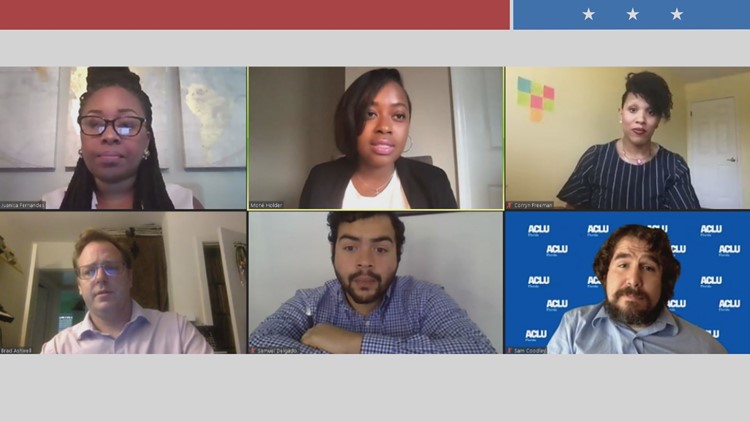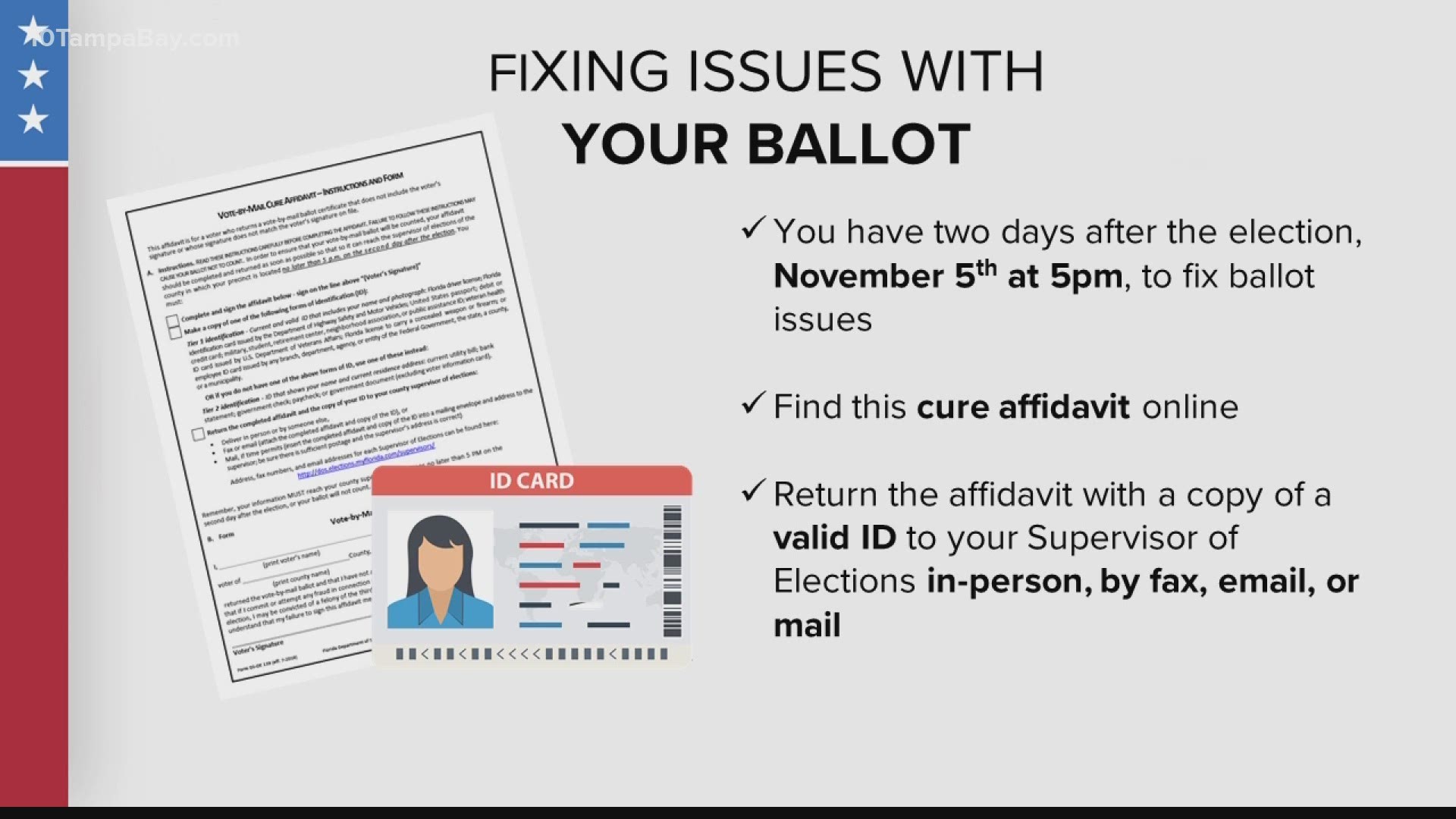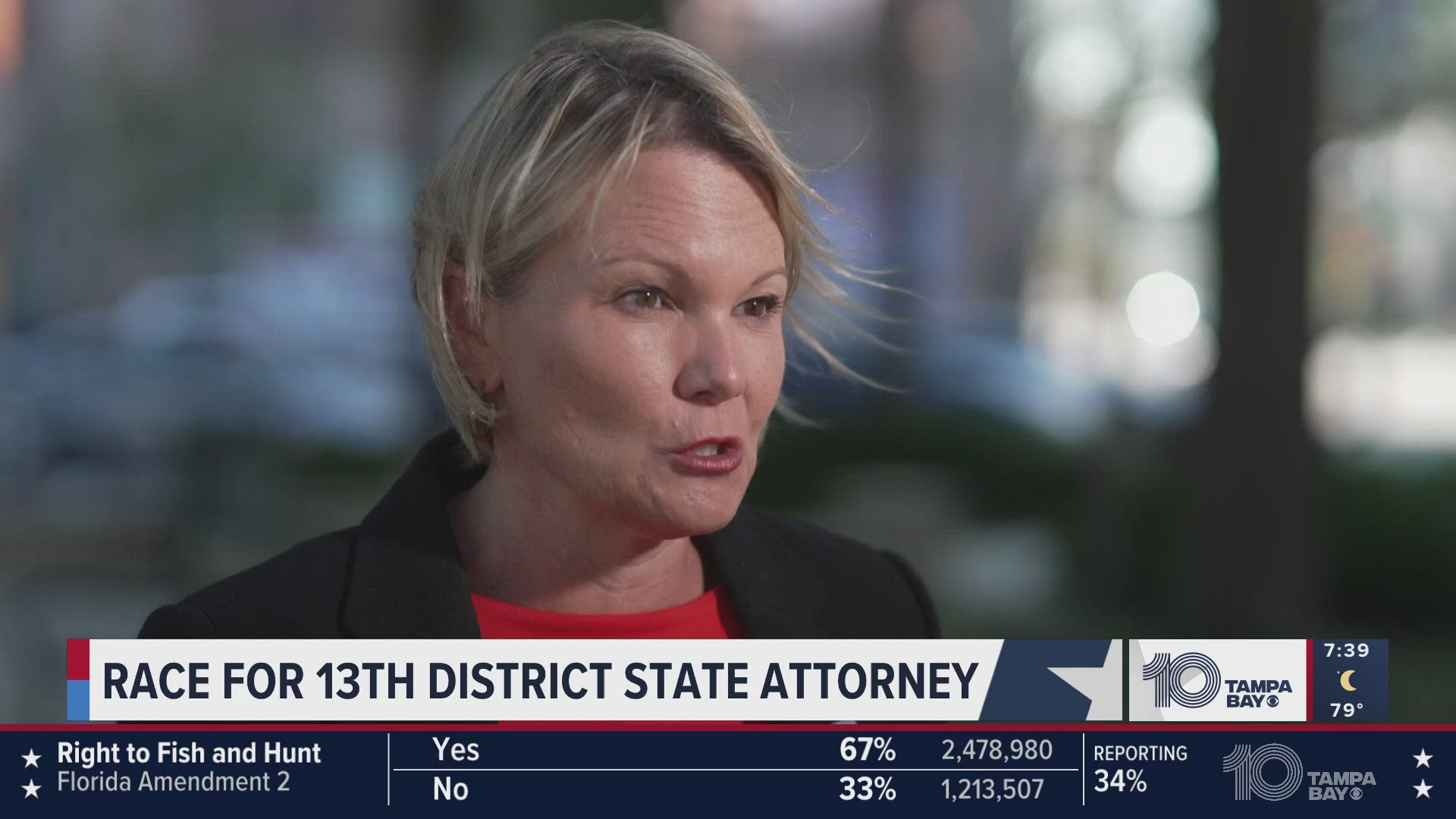TAMPA, Fla. — During a virtual media conference Tuesday morning, a statewide coalition named Duval, Broward and Seminole counties as places where it has found problems with open, transparent and accessible elections.
Brad Ashwell from All Voting is Local says the organization is concerned about open canvassing board meetings and allowing those proceedings to be broadcast. Canvassing boards decide whether a ballot is rejected.
In Seminole County, Sam Delgado from the ACLU of Florida said sample ballots mailed to voters had problems with the Spanish translation.
Corryn Freeman from Florida For All said in Broward County vote-by-mail drop boxes are located only inside of early voting locations. She said that not only inconveniences voters amid a global pandemic but also causes long lines for voters who are there to vote in person.
The coalition outlined other issues it is urging Supervisors of Elections to address now. That includes prominently posting any information about changes to election day polling locations and making sure that information is reflected online in a voter’s information lookup.
10 Tampa Bay Vote Squad reached out to supervisors around Tampa Bay. In counties where they have to change to Election Day polling locations, supervisors say voters have been notified several times; that information is reflected online, and there will be signage posted on Election Day at the old precincts with directions on where voters should now vote.
Another common thread: the need for voters to understand what options they have if there is an issue.
That is especially of concern for vote-by-mail ballots returned without signatures or signatures that do not match what supervisors have on file.
If there is a problem, voters must “cure the ballot.” You fill out a cure affidavit and provide a copy of the appropriate identification. You can drop it off in-person at your supervisor of elections office, fax or email it. You can also mail it, however, there may not be enough time by the deadline.
The deadline to “cure” or fix issues with your vote-by-mail ballot is 5 p.m. on Nov. 5. That's two days after the election.
Most often ballots are simply not counted because supervisors say they are returned late. Your vote-by-mail ballot must be returned to your supervisor by 7 p.m. on Election Day, Nov. 3.
These groups are urging voters to return them in person. You can put them in secure drop boxes at an early voting location and any office of your supervisor of elections.
Corryn Freeman says they are concerned about the disparity in ballots that are rejected among minority voters. She shared state vote-by-mail data Florida For All had analyzed from Tuesday.
Of the 3.9 million vote-by-mail ballots returned, roughly 21,000 were flagged. Two-thirds were missing signatures, and 1/3 had mismatched signatures.
She shared that as of Tuesday roughly 7,000 flagged ballots have been cured, but the cure rate is higher among white voters, 46 percent, compared to 23 percent of Black voters who have corrected issues with their ballots and 18 percent of Hispanic voters.
Vote Squad’s Courtney Robinson asked the coalition if it believes this is attributable, in part, to communication from election offices in Black and Latino communities. Representatives from the groups on the call agreed that they have spent a lot of time educating voters on the process.
“In a state like Florida with 67 different counties, and 67 different supervisors of elections, doing 67 different things, it’s a recipe for disaster,” said Moné Holder from New Florida Majority.
She acknowledged while many supervisors do a good job, more can be done to communicate to voters in minority communities.
“Organizations like New Florida Majority, State Voices, Florida For All, All Voting is Local, ACLU, we have had to strap up our boots, kick into gear and educate our communities ourselves,” she said.
The big message to voters is to go vote, make it count and know that there are solutions to any issues.
They say if voters encounter problems, they can call the election protection hotline at 1-866-OUR-VOTE (For Spanish, it's 1-866-VE-VOTA).
What other people are reading right now:
- Sarasota parents fight back against school mask mandate with lawsuit
- Can I change my vote in Florida? Google search spikes after President Trump's tweet
- Police: Florida man drinks whiskey, steals front-end loader and plows over Biden signs
- Voting by mail? Here's when the U.S. Postal Service says it should be signed, sealed and sent
- Here's the full 2020 World Series schedule
- Hurricane warnings issued for parts of the US; Tropical Storm Zeta expected to regain strength
- What you need to know about the 6 constitutional amendments on Florida ballots
►Breaking news and weather alerts: Get the free 10 Tampa Bay app
►Stay In the Know! Sign up now for the Brightside Blend Newsletter




